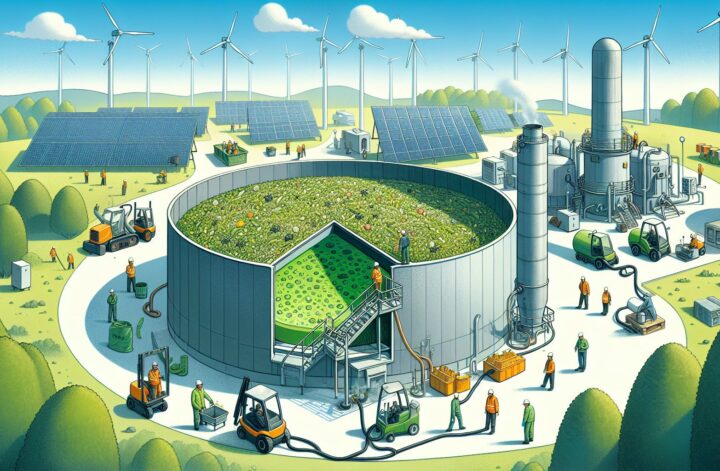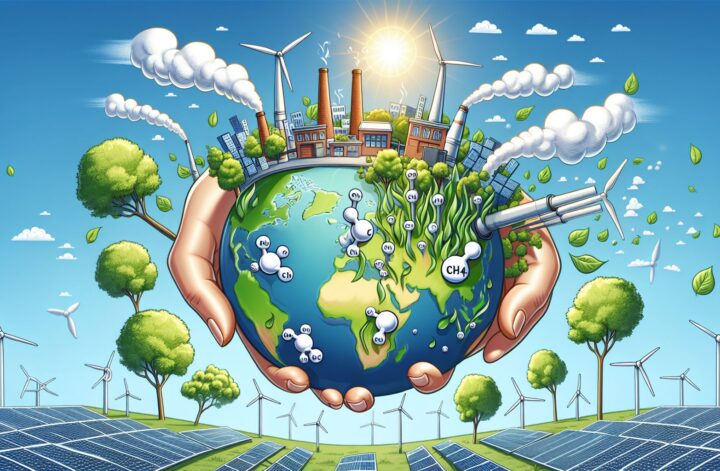In the face of increasing environmental concerns, interest in renewable energy sources has never been greater. To reduce reliance on existing, non-renewable energy sources, and to mitigate environmental degradation, an affordable and sustainable option is fundamental. Among these, biogas production emerges as a promising yet underexplored prospect. So, let’s delve a bit deeper into the mechanics, benefits and possible potential of utilizing biogas as a source of renewable energy.
Introduction to Biogas Production
Biogas is typically comprised of methane, carbon dioxide, and other trace amounts of gases. The primary source of this gas is organic waste, including manure, sewage, municipal waste, plant material, and food waste[^1^].
Producing biogas typically involves the process of anaerobic digestion. This process is divided into four primary stages: hydrolysis, acidogenesis, acetogenesis, and methanogenesis. Through these cumulative steps, complex organic matter is broken down into simple molecules, and eventually transformed into biogas[^1^].
The Process of Biogas Production
Let’s delve further into the steps:
-
Hydrolysis: This is the initial phase where insoluble organic matter is transformed into soluble substances. Enzymes like cellulases and amylases play a crucial role in this process.
-
Acidogenesis: Here, the soluble substances are further broken down to volatile fatty acids and alcohols.
-
Acetogenesis: The volatile fatty acids and alcohol from the previous stage are then transformed into hydrogen, carbon dioxide and acetic acid.
-
Methanogenesis: In this final process, methanogenic archaea (a group of microorganisms) convert the end products of the acetogenesis phase into methane[^1^].
The Benefits of Biogas Production
Biogas production has several tangible and far-reaching benefits. Let’s explore a few more significant ones:
-
Renewable Energy Source: Biogas production provides a reliable and sustainable source of energy which can be used to power generators, provide heat, and fuel vehicles.
-
Waste Management: One of the more sizeable benefits of biogas production is its impactful contribution to waste management. It offers an excellent means of disposing and treating organic waste, thereby reducing environmental pollution[^2^].
-
Reduced Greenhouse Emissions: Using biogas as an alternative energy source significantly reduces the emission of greenhouse gases. Methane, which is the primary constituent of biogas, is around 20-25 times more potent as a heat-trapping gas than carbon dioxide[^3^]. Thus, the conversion of methane into an energy source helps mitigate the impact of global warming.
-
Job Creation: The expanding biogas industry also delivers a considerable level of employment creation. From service delivery to operation and maintenance of biogas systems, a range of opportunities exist, contributing to economic growth.
Potential Obstacles and Challenges
While biogas production presents a host of benefits, a few challenges can affect its widespread adoption and efficiency. These include:
-
Technical issues: These relate to the design and operation of anaerobic digesters. Other factors like Hydraulic Retention Time (HRT) and Organic Loading Rate (OLR) also affect biogas production.
-
Inhibition of anaerobic digestion: Certain substances like ammonia and sulfides can be toxic and inhibit the process of anaerobic digestion.
To overcome these issues, concerted research effort and funding is required. Higher investment in R&D can help troubleshoot existing issues and improve the efficiency of biogas production.
The Future of Biogas Production
Looking forward, the role of biogas production in energy generation cannot be overstated. Given the manifold benefits it presents, scaling up biogas production opens up an avenue for more sustainable, cleaner and efficient energy use. It’s time we consider harnessing this underutilized resource to its full potential, for a renewable and environmentally responsive future.
[^1^]: Anaerobic Digestion Fundamentals, Clarke Energy
[^2^]: Biogas: A Bright Idea for Asia, Asian Development Bank
[^3^]: Methane: The other important greenhouse gas, Environmental Defense Fund




